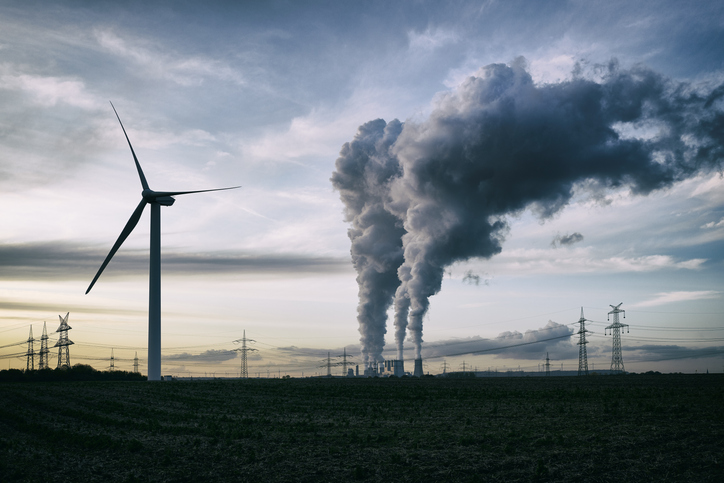Conducted against the backdrop of the Federal Government’s recent refusal to join 64 countries in a global pledge to save biodiversity and endangered specifies – despite Australia having one of the highest losses of bio-diversity in the world – the Conservation Council ACT Region wrapped up their ACT election candidate forums by pushing the parties on their climate credibility.
Conservation Council ACT Region executive director Helen Oakey hosted the organisation’s third and final ACT election forum last night, Tuesday 29 September.
Ms Oakey said the Council sought to influence governments and build widespread support with business and community to deliver environmental outcomes and put forward evidence-based solutions and innovative ideas for sustainable living.
“Tonight’s conversation is around climate change and urban sustainability,” Ms Oakey said.
“The impacts of changing climate are well upon us with increasingly severe fires, storms and droughts, forcing societies and ecosystems to change the way they function.
“Responding to climate change requires both adaptation actions to adjust to the changes that have happened and are predicted, and mitigation actions to avoid and minimise further emissions.”
Ms Oakey said the internationally agreed upon targets to limit global warming to two degrees required “no more than another 95 billion tonnes emissions” and at the current rate of 10 billion tonnes of annual global emissions, Canberra would exceed the remaining carbon budget by 2030.
“Canberra is one of the world’s wealthiest and highest emitting cities per capita and has a clear moral obligation to take strong action to reduce emissions,” she said.
“In 2017/18, the ACT’s per capita emissions were 14.2 tonnes, that’s nearly three times the 2014 global average of 4.9 tonnes per capita.
“We have a very weighty climate footprint.”
Present for the debate were: Elizabeth Lee (Canberra Liberals spokesperson for the environment), Mick Gentlemen (ACT Labor spokesperson for environment), Shane Rattenbury (ACT Greens leader), and Robert Knight (Canberra Progressives candidate for Murrumbidgee).
Ms Oakey began the discussion on a point of agreement, with all parties in the ACT Legislative Assembly having already committed to net zero emissions by 2045.
She said climate science indicated Canberra needed to make deeper, faster cuts to stabilise the global climate and keep temperature increases to below two degrees.
“Do you support the need for greater urgency to cut emissions? And if your party forms government, will you commit to expediting actions to reach net zero emissions earlier than 2045?” Ms Oakey asked.
Ms Lee said the Canberra Liberals supported the plan to zero emissions by 2045 and, in government, her party would look at ways they could do it faster.
“Obviously, we will consider those,” Ms Lee said.
Shane Rattenbury said the Greens believed technological advances would enable the ACT to reduce emissions much faster than by 2045.
“We should have ambition,” Mr Rattenbury said.
“I think it’s inherent on wealthy cities to show what’s possible. Our policy document says we plan to strive to reach zero net emissions by 2030.”
He said his party had released “comprehensive plans” around transitioning to electric vehicles, active travel and retrofitting existing buildings.
Robert Knight from the minor party, Canberra Progressives, has marketed his campaign as a potential pragmatic holder of the balance of power and repeatedly backs the policies of the Greens in this portfolio.
“If we’re smart about it, we can develop our waste into new industries and sell it to the world,” Mr Knight said.
“It is a worldwide problem. It is a worldwide market for technologies, ideas and concepts that help reduce our emissions.
“So, I think it’s not a case of going lightly and hopefully we don’t damage the economy along the way, we do it smart and leverage the opportunities that come from it.”
Labor’s Mick Gentlemen said in lieu of the Australian Government’s failure to take effective steps, it was now up to the states and territories to “do the work”.
“We’ve got a strong climate platform,” Mr Gentlemen said.
“This election, we’ve committed to supporting tens of thousands of Canberra households to transition to more personally produced and stored renewable energy and significantly reduce their power bills.
“We want to tackle our largest source of emissions in transport by transitioning Canberra’s entire electric bus fleet to zero emissions by 2037 or earlier.
“New skills will be zero emission skills, and Labor has a realistic and properly thought out policy to increase Canberra’s urban tree canopy by planting 450,000 trees over the next 25 years.
“We’ll continue to pioneer innovations to reduce emissions, transforming our city into a place where innovators come to build the solutions to tackle climate change and support new clean industries to create high-tech jobs across the city.
“We want to help our city and its residents adapt to current and unavoidable global warming and invest in measures to protect density for more intense and frequent natural disasters such as we’ve seen with bushfires and we’ll continue to upgrade ACT Government facilities to assist in reducing the number of carbon emissions produced.”
For more stories
ACT votes: meet your candidates
ACT Election 2020: Your questions answered



